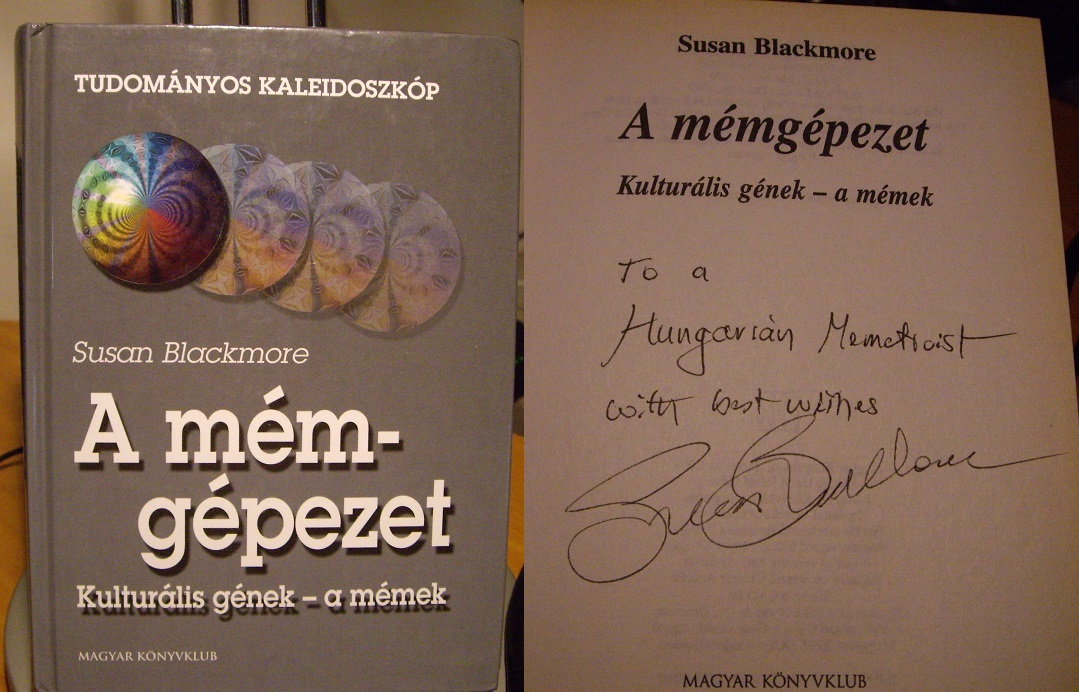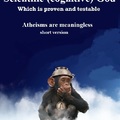
IGe: Tricky "Meme" , Too / beyond Richard Dawkinson
complete e-book: Barnes & Noble Booksellers , Apple books , Google Play books store , Z-Library
Scientific methodology is a filter, which can separate stupidity from rational and logical things. This filter can be used in many kinds of things we know in any form. When we try this filter on „God” only real facts will remain from most religious documents and descriptions. For example, founders of religions created „gods”, and they did create a lot. This is a fact. And the other many many scams are not. Certainly, „god’s creation” is only a religious jargon and „creating god” would be a better and right term. Moreover we must not forget that scientists believing they are rational minds have thought a lot about the topic and most of them only said silly things, but there were some of them whose efforts can make a strong base for a „God” that is founded by science.
„Well, what the hell is going on here? What is this casual drafting? Is it a parody, a caricature, a joke or a teasing?” The legitimate question might arise. No, it is not, even it looks like that for the first time. I wrote a much shorter introduction earlier, but I realized that it would not be enough, not even in the case that people nowadays do not read longer texts. The longer text it is, the less readers there are, and it is a very unambiguous fact and connection. Now I will submerge into details and will reason that sometimes reality can be the most surprising, and even I myself did not think about it when I started my research at the end of the twentieth century and at the beginning of the twenty-first century. This introduction will describe the main point in short and there are some selected writings which will give you a sample for a more complete picture.
Before starting the essence, I will write some lines why this thing became so personal. I myself am a very sure strong point – a „sensor” – in this experiment, deduction or argumentation. I know only one feature of mine that is significantly different from the Earth’s about 7.5 billion present-day average inhabitants, but it is not the outstanding cleverness or the outstanding knowledge either, but the different hipnability. I mean, I am not suggestible or hipnable, either. Ergo others’ memes can not affect me, either. I have meme immunity. – Hmm, that’s the case. Well, let’s start! …
If we investigate or filter „God” with scientific methodology, it will remove many exaggeration, magnifying and lying, which are features of myths, and the only thing that remains is reality. The reality, which will also be mystic and unbelievable for many. But, of course, it must be known, not to believe. Because ’faith’ is only a synonym for ’uncertainty’ and ’not-knowing’. Things that are certain are supposed to be known, and not only believed. The others, who would consistently like some uncertain things to be certain, must trust in them!
The number of my membership card at the Scientific Society of Hungarian Para-Research is 13; my activity and ideas in research works at AION Foundation for Researching Human Psychical Abilities at the Experimental Psychology Faculty in ELTE (today it is Cognitive Psychology faculty); my membership in ’Fact Followers’ Team’ and may critiques towards them; my effects for Hungarian Sceptical Society – these all helped me to begin something which an average person, or maybe a scientific one would not do, because of their psychical bounds. I have experienced so many things that made me able to do two important things: No.1. I do not have any psychological and thinking obstacles. No.2. I can avoid self-cheating tricks of human mind.
Nobody seemed to try that apart from me, not that time and has since then. Anybody, who made any efforts in this field, mostly tried to justify their own previous ideas or private ideologies. They are typically prejudiced and used logic in a scandalous way. I looked through the logical arguments proving God’s existence (Anzelm’s, Descartes’ and Gödel’s ontological reasoning, the cosmological reasoning, Pascal’s probability reason, Thomas Aquinas’ „first mover” (prima causa) reason, the morality reason, and William Paley’s designer argument) and these kinds of works of more important philosophers, psychologists, psychiatrists, physicians, mathematicians and zoologists. I propounded this issue in forums on the Internet and scientific debates, and I consulted about it with theologians and experts of religious studies. The result: nobody has ever examined „God” scientifically. Theology itself is originally a form of pseudo-science, nobody would expect it to do that.
I found a particular answer (’why not examine God’) at more and more places, like: „God is obviously outside the area of science. Its existence can not be proved or confute.” A lot of people tried to convince me with it. It did not seem to be logical at all for me. On one hand it tries to seem a scientific statement, but it should be justified, and it has never ever happened. I realized very soon that it was a great scam. It is a circular reasoning (petitio principii), which is a form of faulty reasoning and thinking. It is not allowed in science. So, I ignored it and I started to examine „God” with the scientific method, because I have not seen anybody else to do that.
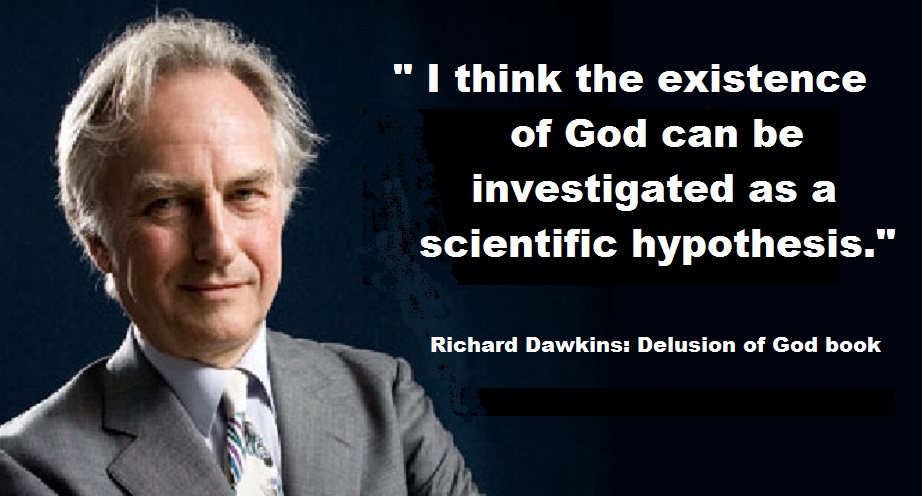
There are many ways in scientific methodology, but in these cases when there are no strong and evident points – only descriptions, opinions, incomplete studies, divinations, tips - the very first thing is: collecting data. So I started to collect what people think to be „gods” all around the world. It was a very long and detailed task and it is very important that this time we must not be partial with our accidental presuppositions and put only the ones fitting to our ideas into the „basket”. I must admit that it used to be hard for me myself too, but I could manage it, and today I have not any. I had a kind of ’morphogenetic field’ god-figure in my mind. I give you a short description showing what I meant it. Those days it was a subject of science-fiction and scientists worked with it. The main point is that thoughts and wisdom of people do not get lost, but somehow they gather and form a system of connections. I thought all the other living beings have a part in it. The present or future knowledge of all the people and other beings may be able to create itself by going back to the past. A lot of scientists have played with this idea, but they usually model it with computers. As an example for analysing the real or apparent time-paradox I mention the recent and important movie „Interstellar” (2014) which had a screenplay written directly about these kinds of thoughts.
Returning to present from fiction or the level of our future knowledge:
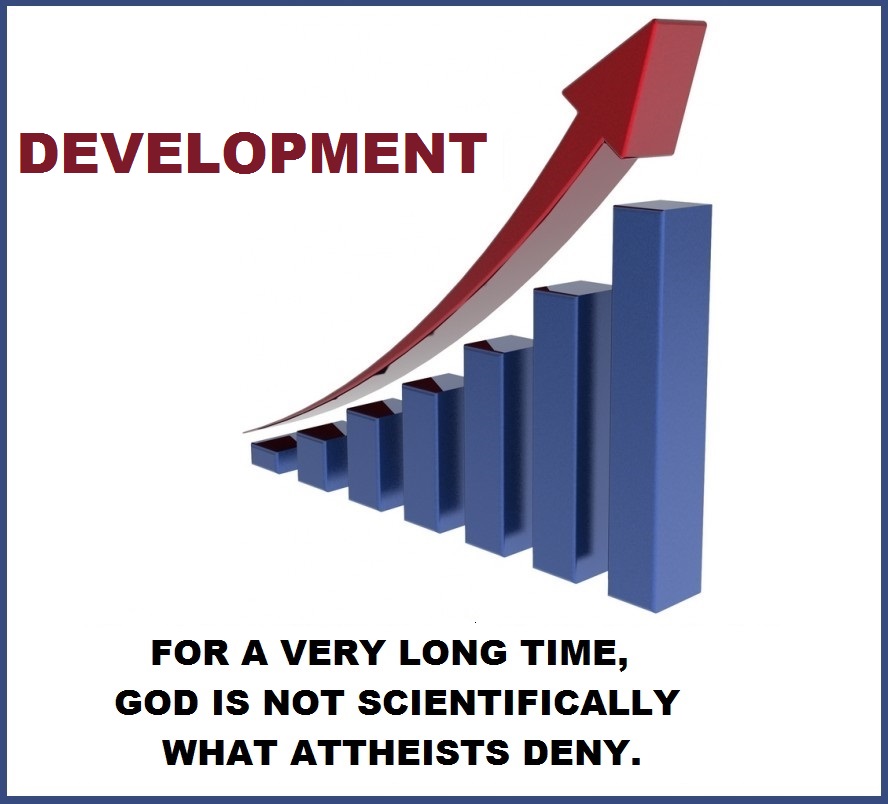
I collected several thousand (about five thousand) so-called definitions of „Gods”. This is an enormous amount of data. They range from a definition in a theological encyclopaedia to the simplest, or even ironic ideas. I did not think of recording them for the next generation, and it would not have been reasonable, because practically it may be collected again at any time easily. What did I do instead of that? I selected the recurrent and almost identical ones and the collection reduced to some 100-150 pieces which is an easily-manageable amount. I did not use another filtering method so in the collection there are definitions which should not be in it according to some people. On the contrary, I left them in, because I could exclude the faults of my own by controlling myself.
The next step was the systematization and processing of data I had collected and filtered. Firstly, I was able to record this amount, but it would have been easy even for an average man, who can read and understand them. The most evident thing is to try to find a „common ground” like in maths, but there were not any. I decided to analyze the descriptions one after the other, examining them logically and their own, inner contradictions. It was not a proper way, either, and I made mistakes where everybody else would have, when knowledge is not as much as some time later. This way my comments written to „God’s” definitions are marginal. Those are only a kind of funny sophistries. But an important thing got verified: people defined „God” in so many ways, that only this can be a very good proof that they do not believe in the same „Gods”, and they do not deny the same ones.
It would be basically impossible and according to scientific methodology’s regulation we do not have to reach a definition of „God” that would be satisfying for every religion. If it had ever been possible mankind would not have ten-thousands of gods and religions. But … there are! The logical consequence of this is that logic, demonstrability and consistency are what matter in further analysis. In this case science suggests that we should form possible theories. They have to be tested and corrected if it is possible. If not, they have to be thrown away. The incorrect, or partly incorrect ones have to be tested further. I did it. What’s more, I drew a conclusion that was very close to the final result at that time, I think. I published it and advertised a challenge to criticize it. Moreover I even offered a prize of one million HUF for anybody who can refute its validity successfully and another prize of one hundred thousand HUF for anybody who can correct it or complete it with a meaningful correction. It passed the test, there were not any contradictions, but I myself was not satisfied, because it was too complicated and I did not think it was perfect and easy to understand for the public:
General God (hereinafter called ’God’); a special form and type of emotion existing in minds of individuals and groups. With help of God some (the theists) explain genesis, structure and behaviour of world and life in an illogical and imaginational way, and they would like to find solutions for problems and situations in their lives. The concept of God may affect others (for example atheists, realists, naturalists, and even sceptics) that their sense of logic and critique unconsciously and similarly to that of theists in some fields.
This definition is not easily understandable for average people and even experts, either. I have always seen this problem. So I made it shorter and easier.
I spent about one and a half decades on this analyzing, continuous testing, organizing, perfecting work (with many other things I take part in), but in the end I got a fairly exact definition of Scientific God, which can be considered as a scientific fact without any exaggeration. The reality of this God can be and has been proven. Furthermore, I put together a system of reasons and proofs against the possible and specific pseudo- but not real objections, and I tested them continuously, with special regard to psychological effects. As a side-effect (or side-product) the results showed obviously that not only beliefs in gods but rejection of gods also lose their logical bases. Members of a theist or an atheist group think that their beliefs, ideologies and principles are logical and not only a special form of human, cultural games, like one of mine, Religion of the Jedi. I myself was very surprised but I refuted atheism. The General and Scientific God is the disproof itself, and there is no point in denying, because it is true. The filter of science let only this one, because it is reality:
God = umbrella term: 1. beings in myths created by men; 2. a special obsession.
God, Toy, Car, Musician, Cow, Vegetable … are all umbrella terms beginning with lowercase or uppercase. Even when a pet, horse or dog are called God or Vegetable. There are several names and labels which collect a lot of things together, under the same name.
The exclusive use of the word „God” in both monotheist and atheist groups is wrong and not allowable not only logically but semantically, too. There are dozens of religions with one god and those „gods” are not the same and they all have different identification names.
On the other hand, the word „God” has different subdivisions in its meaning which can be the following: one in standard language; one in art; then there are metaphorical; paradoxial; religious dogmatical in various types; philosophical in different forms; psychological and scientific ones. These can not be interchanged.
If the definition is cut to three logical parts, we can see that the first two ones are perfectly unambiguous facts. What is more – well-known facts. Only the third part, the obsession needs special argumentation and deduction. Maybe it does not really either, because Freud, who was neurologist and psychologist, and many other scientists played with this definition; although I think obsession is much more exact diagnosis for that than that of neurosis or even schizophrenia. Because typical theists cannot be convinced by rational arguments about the untentableness of their beliefs, which they think to be real. Those who deny „God”, I mean the atheists, who mostly try to show themselves as rational thinkers cannot be convinced by rational arguments that their denying no longer makes sense with a scientifically defined „God”. Their denying can only make sense if they accept others’ obsessions of „Gods”, but this case they will have some latent beliefs in „God”. This latent theism of atheists’ can be helped by naming themselves ’poliatheists’. So they are not ’deniers of God’, but ’deniers of gods’.
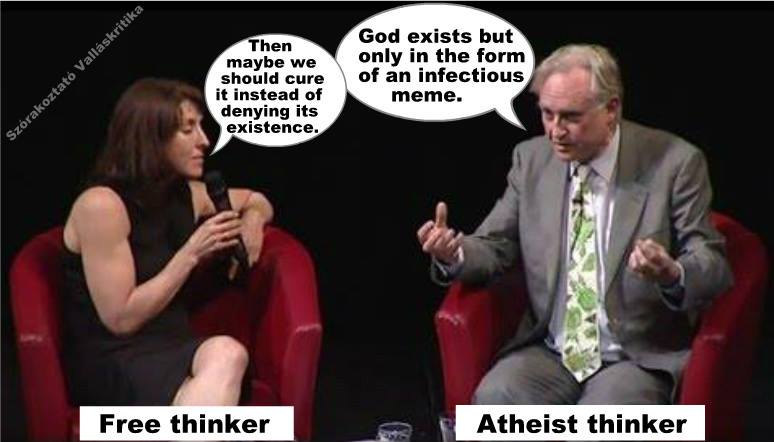
I have to mention Richard Dawkins, who is mistakenly considered to be the only founder of memetics. I think he is correctly only one of the founders, because he has predecessors and followers too, who produced more important things in the field. Dawkins’ efforts are significant in biology, in memetics his only result is the gene-meme parallel. „God is an infectious meme” and it was recognized correctly by Dawkins, but he made a mistake – despite having all the necessary facts and possibility to identify then and now – that atheism is not appropriate as a counter-meme or counterpoint. The reason is that the wrong definition of atheism known nowadays was created by theologists of Abrahamic religions. So, atheism, like many other pagan phrases and swearwords, is originally a tricky (religious-)meme. As they say in politics, it is a useful image of enemy. Attacking and calling atheism an enemy is easy and practical, and it is done by religious groups.
But, if atheists would change their self-description for ’rationalist’, the theists would not want to speak about, or attack or look at them as enemies, I mean rationalists. Dawkins’ book, ’The God Delusion’ – which is a critique of religion against judeo christianity int he first place - has become the Bible of atheists’. Its contents are very out-of-date for me, but the title is right more or less. Because delusion is a synonym for obsession.
After naming it as an obsession and proving and testing that it is the right category we have to work on the cure. Because we have it and it is working, and we have had some cured people. But, it is the result of a several-thousand-year-old bad innervation, deformed fashion and „brain-eater” meme, curing it will not be easy. We have to be patient and there will be a lot of fellow creatures who has come or is coming out of „God”-obsession.
My opinion is that we do not have to deny or believe in God, but to know „God”, and to help fellow creatures having „god”-obsession with monotheism, monism, theism, deism or atheism to be cured. With their special mental illness and addiction they cannot see the inconsequence and self-contradiction of their own. Their „illness” can be cleared away with Healing Vaccine Thought Viruses easily without any pain. These are mainly weakened stupidities, which are often funny, too. Yes, „God” can be cleared away by laughing.
Towards the end of my two-decade searching and testing, in the spring of 2019 I realized, that much-controversial memetics is embeded in science very much. I completed my knowledge about theories of memetics written afterwards – I had some recognition myself and I very often used the theories in practice. I saw, that my „Healing Vaccine Thought Viruses” are „immune-meme” ones in memetics. It was a nice surprise for me after Dawkins’ rough-and-ready writings about memetics, because this way I have a many-sided confirmation, which is very important in the scientific point of view. Dawkins’ only recognition is that „God” is a dangerous and infectious meme, but he did not notice that it is a pointless thing to deny it with militant atheism or attack it, but it is very useful to heal it.
If scientific method shows the right and true way, and I am sure it does, only some time is needed for solving the biggest problem of the human world’s largest meme.
Scientific (cognitive) God, which is proven and testable.
+ Tudományos Isten feltárás első verziója pdf fájlként szabadon olvasható
prize and a book dedicated to me:
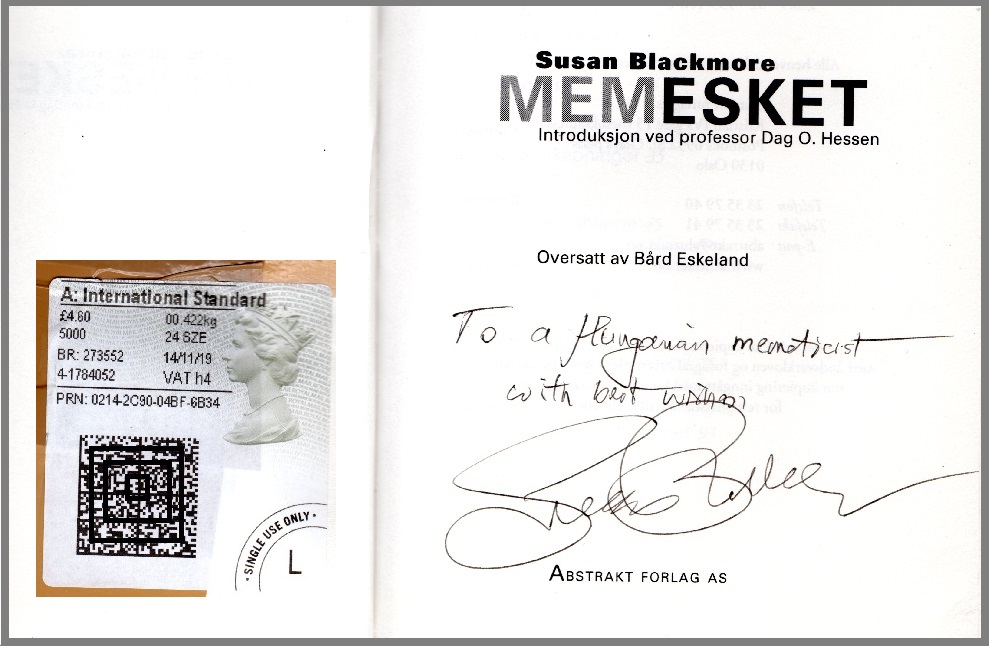
Susan Jane Blackmore (born 29 July 1951) is a British writer, lecturer, sceptic, broadcaster, and a Visiting Professor at the University of Plymouth. Her fields of research include memetics, parapsychology, consciousness, and she is best known for her book The Meme Machine. She has written or contributed to over 40 books and 60 scholarly articles and is a contributor to The Guardian newspaper.
Dr. Susan Jane Blackmore (London, 1951.) angol tudós. A legismertebb könyve A mémgépezet (1999). Pszichológiából és élettanból diplomázott az Oxfordi Egyetemen (St. Hilda's College). További tudományos fokozatait a Surreyi Egyetemen szerezte (MSc: 1974., PhD: 1980) környezeti pszichológiából, illetve parapszichológiából.

